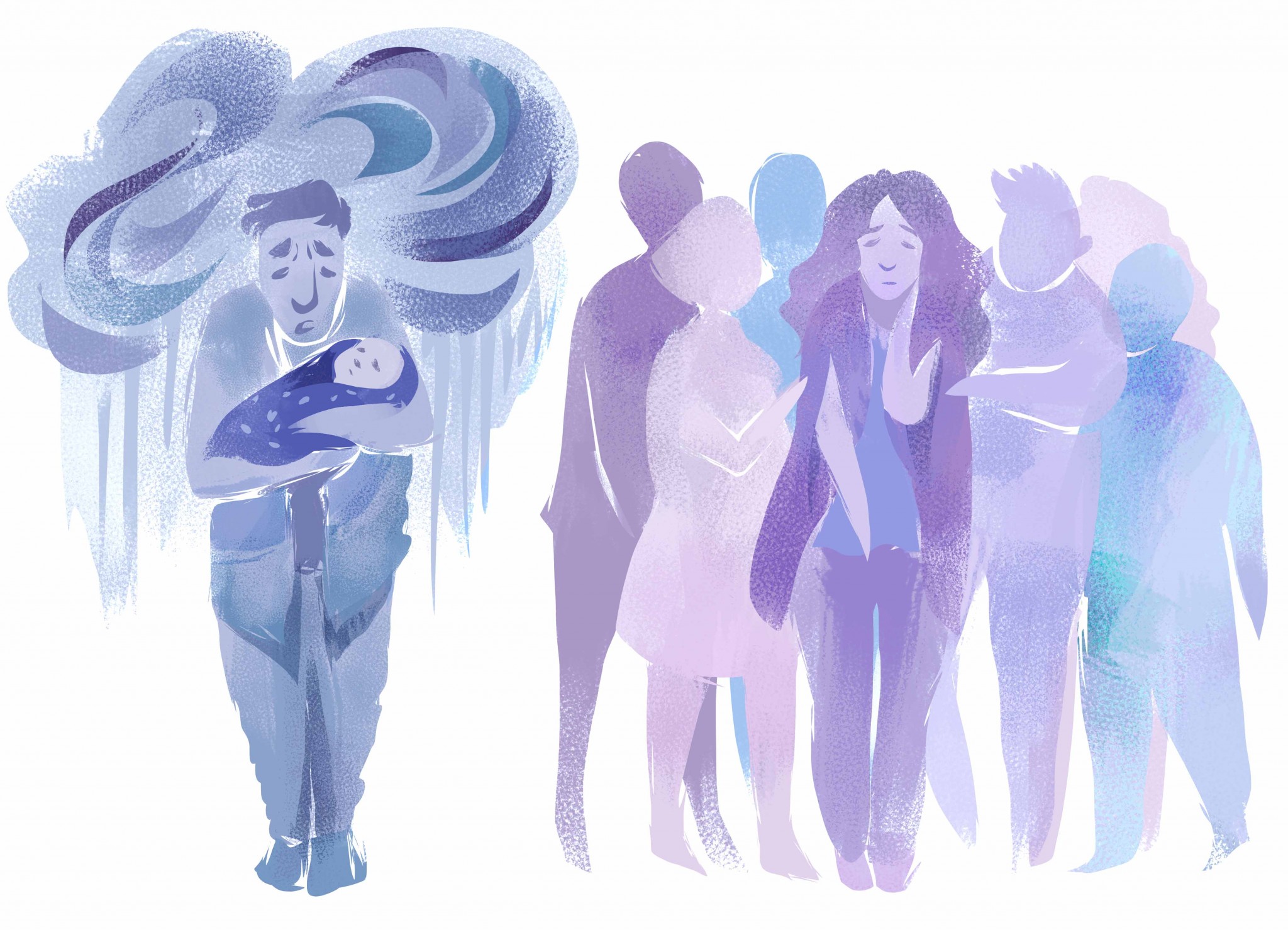The birth of a child is typically considered to be a joyful experience; however, it can also be a stressful and difficult time in parents’ lives. Sometimes this stress can lead to conditions like antenatal depression or postpartum depression (PPD), which occur during and after pregnancy, respectively. In the past decade, research on antenatal depression and PPD has mainly focused on women. Recently, scientists from the Research Institute of the McGill University Health Centre (RI-MUHC) closely tracked the depression symptoms of expectant fathers during their partner’s pregnancy and found strong correlation between the men’s depression, sleep quality, social support, their relationships with their partners, and financial strain.
Although earlier studies have shown evidence of PPD in men, its association with antenatal depression had not been examined closely. In the present study, lead researcher, Dr. Deborah Da Costa, focused on the prevalence of depressive symptoms among first-time fathers in late pregnancy, as they are strong predictors of PPD.
To conduct the research, online questionnaires were distributed to couples, in which they were asked to report their mood, sleep quality, and distress in partner relationship. Their mental states and the stress factors were carefully measured by specific and well-validated assessments, such as the Edinburgh Depression Scale, which screens for symptoms of depression and anxiety.
The data collected from the research shows that older age, unemployment, and the lack of sleep accounted significantly for antenatal depression in men. Psychosocial variables such as lower social support and financial stress, also played a key role in causing depressed moods. Additionally, elevated depressive symptoms experienced by women during third trimester of their pregnancy negatively affected the mental states of their partners.
Based on these findings, Da Costa emphasized the need to give expectant fathers more emotional support.
“Men tend to close themselves off […] while women are much more expressive, which is why people are unaware of the depression in men,” she explained. “[But] men and women share the same symptoms—sadness, loss of hope, not enjoying life—they just express [that] differently.”
Da Costa also recommended prenatal classes and online resources as a recourse of information for men who need help with managing their stress.
“Unlike women, who tend to express their emotions, men are less likely to go to consultations of mental health because they feel the stigma associated with it,” she said. “In this case, internet might be a useful tool to offer help.”
Other ways to help first-time fathers include screening for sleep problems, addressing sleeping problems during transition to parenthood, more social support, and shifting marital strategies to reduce stress in a couple’s relationship.
A new baby puts stress on both partners—not just new moms. As traditional gender roles change and evolve, issues like men’s mental health are getting the attention they need and deserve.
“[Studies on men] are necessary because good mental health is important to [everyone’s] life,” explained Da Costa. “When men feel depressed, they tend to engage in unhealthy behaviour such as drinking, [and], it can also bring negative effects [to] the relationship between the couples […] and affect the development of the child.”









